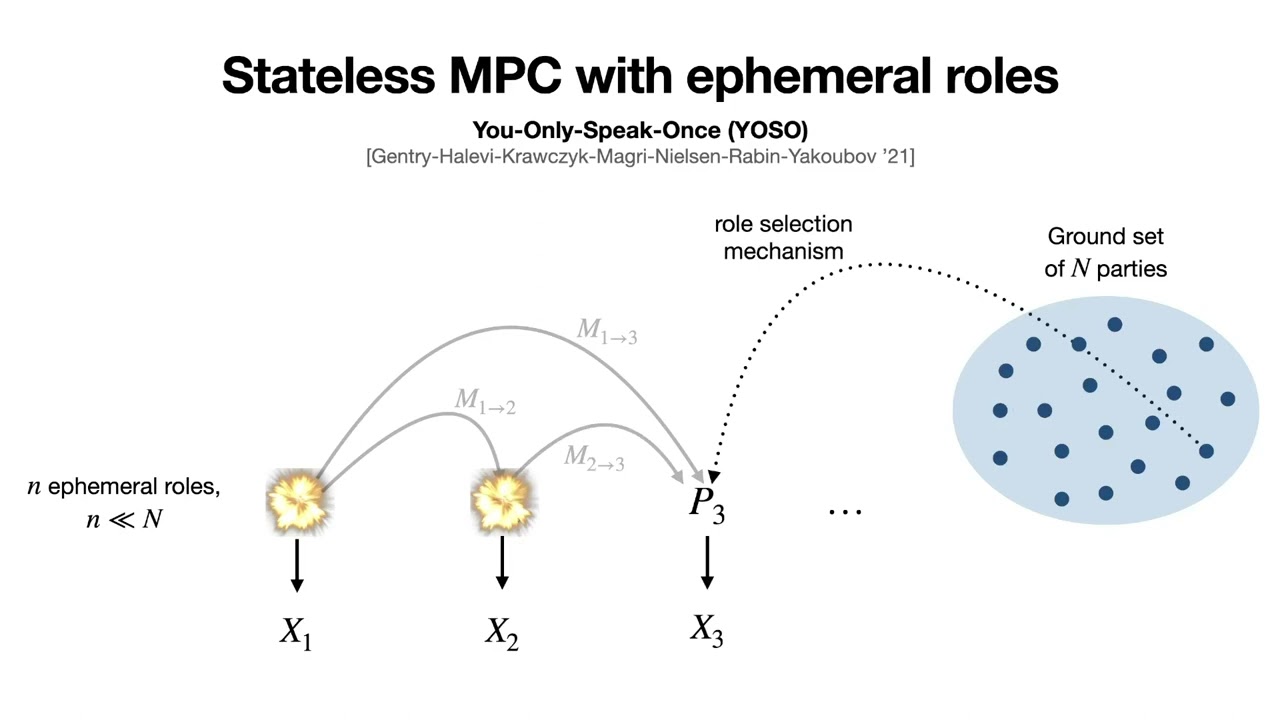Welcome to the resource topic for 2022/237
Title:
Public Randomness Extraction with Ephemeral Roles and Worst-Case Corruptions
Authors: Jesper Buus Nielsen, João Ribeiro, and Maciej Obremski
Abstract:We distill a simple information-theoretic model for randomness extraction motivated by the task of generating publicly verifiable randomness in blockchain settings and which is closely related to You-Only-Speak-Once (YOSO) protocols (CRYPTO 2021). With the goal of avoiding denial-of-service attacks, parties speak only once and in sequence by broadcasting a public value and forwarding secret values to future parties. Additionally, an unbounded adversary can corrupt any chosen subset of at most t parties. In contrast, existing YOSO protocols only handle random corruptions. As a notable example, considering worst-case corruptions allows us to reduce trust in the role assignment mechanism, which is assumed to be perfectly random in YOSO. We study the maximum corruption threshold t which allows for unconditional randomness extraction in our model: - With respect to feasibility, we give protocols for t corruptions and n=6t+1 or n=5t parties depending on whether the adversary learns secret values forwarded to corrupted parties immediately once they are sent or only once the corrupted party is executed, respectively. Both settings are motivated by practical implementations of secret value forwarding. To design such protocols, we go beyond the committee-based approach that is sufficient for random corruptions in YOSO but turns out to be sub-optimal for chosen corruptions. - To complement our protocols, we show that low-error randomness extraction is impossible with corruption threshold t and n \leq 4t parties in both settings above. This also provides a separation between chosen and random corruptions, since the latter allows for randomness extraction with close to n/2 random corruptions.
ePrint: https://eprint.iacr.org/2022/237
Talk: https://www.youtube.com/watch?v=h6U0SiMSnfM
Slides: https://iacr.org/submit/files/slides/2022/crypto/crypto2022/96/slides.pdf
See all topics related to this paper.
Feel free to post resources that are related to this paper below.
Example resources include: implementations, explanation materials, talks, slides, links to previous discussions on other websites.
For more information, see the rules for Resource Topics .
